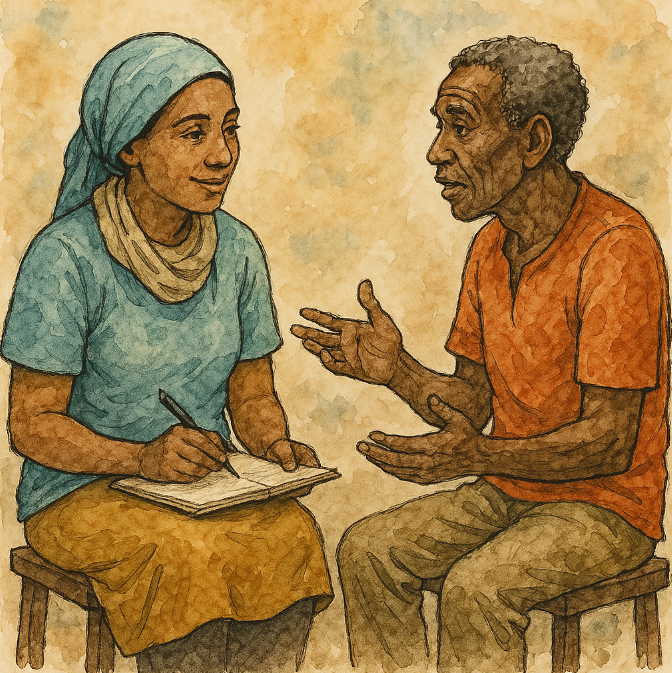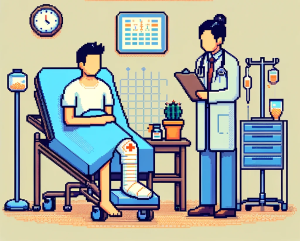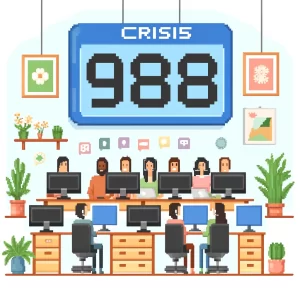
What Happens When Public Voices Are Ignored in Health Equity?
Four years after COVID-19 changed everything, we’re still wrestling with a crucial question: Do people trust public health? A recent study examining documents from the federal COVID-19 Health Equity Task Force (HETF) suggests… not nearly enough.
And maybe that’s because the government wasn’t really listening.
While the pandemic exposed and deepened long-standing inequities—especially among Black, Latinx, Indigenous, and low-income communities—it also revealed cracks in the foundation of public health: trust.
Who’s Talking About Trust? Not Who You’d Think.
The researchers behind this study reviewed over 500 pages of federal COVID-19 equity documents, including meeting minutes, executive orders, and final reports. They focused on how often—and how meaningfully—the word trust came up.
Here’s the kicker: more than half of the mentions of trust came not from task force members or federal officials, but from everyday people making public comments.
Let that sink in. The people most affected by inequity were raising their voices. But their words often didn’t make it into final recommendations.
That’s not just a missed opportunity. It’s a warning sign.
Trust Is Not a Buzzword—It’s the Backbone of Public Health
Think about it: when a public health official tells you to get vaccinated, wear a mask, or evacuate during a disaster, what’s your gut response?
If you trust them, you act. If you don’t, you hesitate—or push back.
The study’s authors argue that trust isn’t just about having the right facts or flashy campaigns. It’s about relationships, lived experiences, and whether systems have historically treated people with respect—or harm.
So why was trust talked about so little among decision-makers?
The Barriers: History, Racism, and Broken Infrastructure
Public commenters and some task force members pointed to clear barriers to trust:
- A history of medical racism and mistreatment
- Poor access to vaccines and care in marginalized communities
- Mixed messaging across federal, state, and local agencies
- Lack of cultural competence and linguistic access
- Health care systems that don’t reflect the people they serve
In other words, people weren’t just reluctant—they had reasons to be.
And when the infrastructure to communicate clearly and consistently breaks down? Trust doesn’t just erode. It collapses.
The Facilitators: What Builds Trust Back Up
The study also identified what helps:
- Acknowledging history openly and honestly
- Investing in culturally responsive communication
- Building up trusted messengers—like community health workers
- Coordinating responses across government levels
- Meeting people where they are, not just where the services are
But here’s the rub: only 12 of the 316 recommendations from the Health Equity Task Force mentioned trust directly. And only five made it into the final list of top priorities.
Worse, none had detailed plans or funding to make them happen.
A Disconnect That Matters
What this all points to is a fundamental disconnect between what communities were asking for and what policymakers prioritized.
As one participant put it, “We need to center the people most harmed by this system in designing the solutions.” That includes making public trust a measurable outcome, not just an afterthought.
Unfortunately, even that recommendation fell short. The federal task force proposed a single-question metric: “Do you trust the federal government?” But what about local health departments? Schools? Safety-net clinics? The real picture is much more complex.
What Happens Next?
This study doesn’t just look back. It challenges us to move forward with clearer eyes.
Public trust in health equity isn’t a checkbox. It’s a process—one that demands ongoing investment, transparency, and accountability. It means listening to people most affected by public health crises and giving their voices real weight in decision-making.
It also means adopting ethical codes that back up good intentions with concrete actions, like community co-design, trauma-informed care, and transparent data sharing.
Because the next crisis—whether it’s a pandemic, wildfire, or heatwave—will test that trust again.
Join the Conversation
- Do you think public health agencies are doing enough to rebuild trust in your community?
- What would meaningful community involvement look like where you live?
- Have you seen examples of trust-building done right—or disastrously wrong?
Let’s build a public health system that doesn’t just ask for trust, but earns it. Every day.
Don’t Let Science Pass You By
⚠️ Public health breakthroughs and threats are happening fast.
Missing one update could mean missing the chance to act, advocate, or lead. Stay sharp, stay informed—with our weekly science brief, trusted by changemakers.✅ Subscribe now—it’s free and essential.
📣 Share this blog to grow the circle of informed action.



